When I was 25 I moved to Florence, Italy. My plan was to find a lesbian community just like the one I was coming from in my liberal west coast college town in the US to become enveloped in, like I had a few years earlier in the U.S.. Instead I mostly met straight expats and wandered around alone getting angrier and angrier at the multigenerational Italian men I saw leering at women and at me, asking if I’d like to fare l’amore? fare l’amore? whether they had teeth or not. It turns out most Florentines are not so excited to meet foreigners since Florence has been a tourist destination for centuries, but the men will gawk at and proposition any lady with curves. I even saw a guy ogling a movie poster and coaching his toddler. That’s another story though.
When I did see a cute Italian dyke somewhere I was way too shy and of course there was the language barrier. I remember seeing one woman a few times. She had an asymmetrical, razor cut, olive skin, green eyes, wore a mustard yellow bomber jacket and lavender ankle socks, I could barely look at her, she was so cute! I would lurk around the feminist bookstore and wistfully gaze at the flier tacked to the bulletin board for the monthly lesbian potluck - imagining she would be there and knowing I could never get up the guts to go, since my three years of college Italian, it turned out, did not really carry me through very in-depth conversations.
Moving to Iowa has felt very similar.
I’ve waited for a few years for that “Iowa Nice” to show up. But I still haven’t really caught a glimpse of it. I was quite surprised in fact at how un-nice people have seemed to be on the surface. Eventually though, when I began talking to people I’ve been able to find ways to connect a little more and I’ve had to get brave. When I notice that I have something in common with someone now I ask them out for coffee. I don’t know where I got that courage. It helps that I don’t want to date them I suppose. Though I do still feel the same level of desperation at times. Even with a girlfriend - loneliness in a new place is real.
A few weeks ago was spring break and remembering that one of my goals when I first moved here was to try to see as much of the state as I could, I decided to take a road trip.
I also made the brave move of getting in touch with one of my Substack idols Robert Leonard, the creator of Deep Midwest and asking him for coffee - so BRAVE! I got to see his cute town of Pella on my way south and spend a lovely bit of time visiting with him, getting Substack tips and sharing some of our back stories. He let me know that Chris Jones would be on the radio during my drive - I had met Chris at the Okoboji Writers Retreat - also BRAVE! He wrote Swine Republic and has an amazing back story which I won’t go into here, but is an expert in Iowa’s water quality and Big Ag’s impact on it. He also has a wonderful yet quite depressing Substack column of the same name. While driving through Iowa’s complicatedly lovely landscape of scabby cornfields with the topsoil blowing away in the wind and straightened creek beds, I was able to listen to Chris’s complex explanations of how fucked up everything is. The last caller asked, “What is the best thing we could do?” The thing I love about Chris is he often has a simple answer for very complex problems. He said this:
“Ethanol needs to die.” He went on to explain, “It is what 60% of our corn production is used for…It creates perversity in terms of land prices. It is not a climate change solution and the only reason we are doing it is for commerce… That would effect land prices which would enable young farmers to get in the business and YES we do need more farmers on the landscape. When more people are managing our land that makes implementation of conservation easier.” AMEN TO THAT.
My destination happened to be an example of exactly what Chris was talking about: Homestead 1839 in Burlington, near the Mississippi in Southeast, Iowa. I knew about it because of some friends from my past life, Molly and Tobin Krell. They moved back to their hometown in 2015 and began running the farm. It’s Mollie’s family’s land and is both of their labor of love and passion. They have been working for the last nine years melding their passions and expertise in community building, gardening and environmentalism in this little pocket of Iowa just off of intersection of Highways 34 and 61 and across the road from Menards, where the city grew up around the land Mollie’s family homesteaded in 1839.
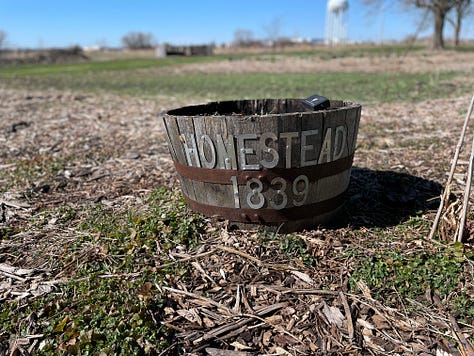

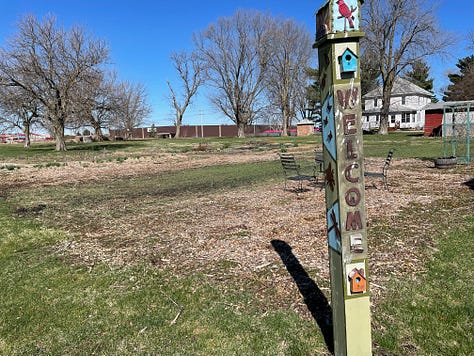
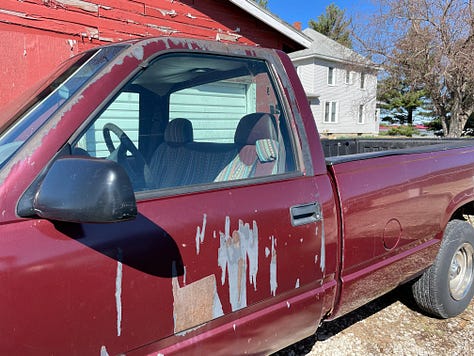
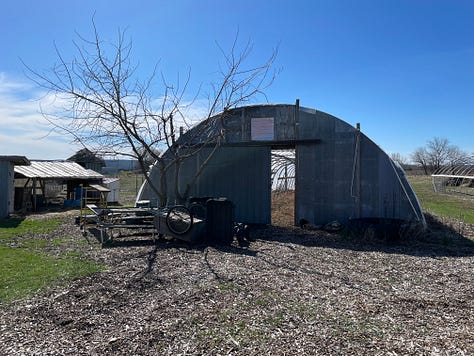
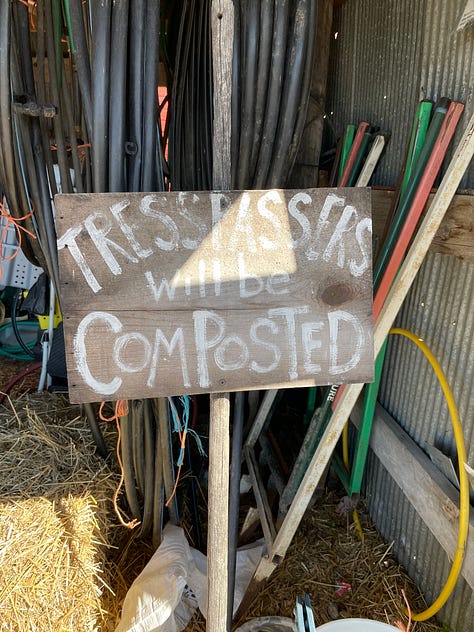
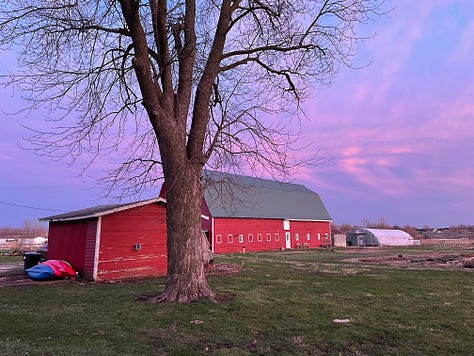
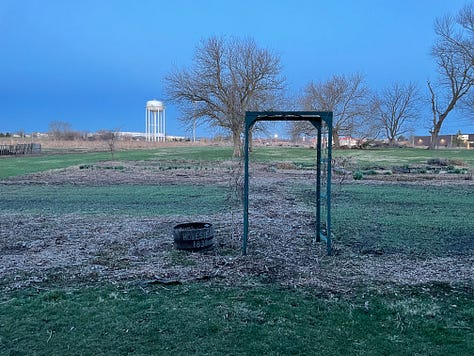
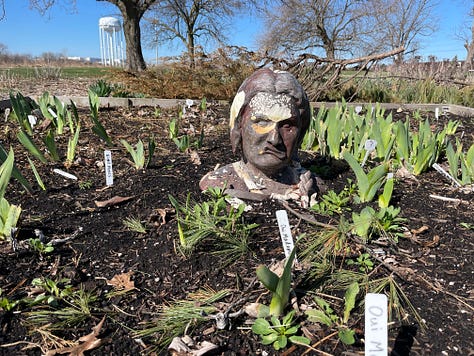
They have about 30 acres where they have switched over from row crops (corn and soybeans, like the rest of Iowa) to a patchwork of sustainable permaculture farmland and native habitat. They have a big patch of pollinator habitat, they have put in over 1000 native trees and shrubs, there are fruit trees, a flower garden, a big vegetable garden, a huge double high tunnel greenhouse and the old milking barn where they have an event space and a little cozy room for guests (like ME!). During the year they grow organic vegetables, flowers and fruit which they sell and donate to nursing homes and foodbanks. They teach youth and others about sustainable farming practices, partner with the schools, juvenile and adult detention facilities, Job Corps, The (Aldo) Leopold Landscape Alliance, the community college up the road and the master gardeners. (I’m sure they have many more partnerships and have had over the years, that’s just what I got wind of in my short 23 hour stay.) They believe in giving back to the earth, giving back to the community and to sharing that knowledge in hopes of turning the tides in Iowa away from the current devastating farming practices.
We visited the greenhouse at the community college where, after some negotiating, they are now able to house some baby starts and try out some hydroponic lettuces over the cold months. Tobin told me that the Agricultural Department at the college has shut down, so the greenhouse just sits at 52 degrees all winter to house the master gardeners’ starts and the few decorative potted plants the college has outside in the warmer months. Tobin and Mollie are thrilled to be able to use it now. When I asked why the Ag department closed. Tobin said it was because modern practices don’t require the same expertise. He said something about just needing to know GPS coordinates for planting and I imagine you just get the seeds Monsanto tells you to, as well as the fertilizer and the pesticides. You also need to know which blood pressure medication to take to deal with the uncertainties of interest rates, predatory lenders, market fluctuations and - oh yeah the crazy weather.
I was reminded of something my partner said when I first got here,
“Farmers don’t have gardens anymore.” It sounded insane to me at the time.
It isn’t 100% true. There are small farmers out here! And the numbers are growing little by little. To be honest, I can’t find any specific statitistics to back that up ut I have gone down a number of rabbit holes and found some great resources like Practical Farmers of Iowa and writing that have led me to believe it: Robert Leonard has written about the Farmer’s Union which feels very hopeful to me!
Beth Hoffman writes her wonderful column In The Dirt, telling her adventures farming sustainably and connecting with her neighbors.
Every high school still seems to have Agriculture classes and kids are still joining FFA (Future Farmers of America - though, for the life of me, I could not find the word FARMER on their website!). Hopefully they have teachers reading Chris’s book and the writing on the wall and encouraging them to move toward sustainability.
And while we are talking about taking care of the earth - Have you read Braiding Sweetgrass yet? YOU MUST. Everyone MUST. Also I learned about this from Beth’s In the Dirt, anther option for taking care of the Earth is to donate to the Honor Native Land Fund. Where land is purchased to “Rematriate” and restore and reestablish “indigenous landscapes”.
I asked Mollie how it is being in her hometown in Iowa, after living on the west coast, Mollie said that most often the first question she is asked is, “What church do you go to?” More often than she actually does she wants to reply,
“The garden.”
I love that reply. And I’m hopeful that more and more Iowans are feeling that way. I know Chris’s vision of getting rid of ethanol is a long row to hoe ( see what I did there :D) but little by little we can start chipping away. One cup of coffee, one conversation, one farm at a time.


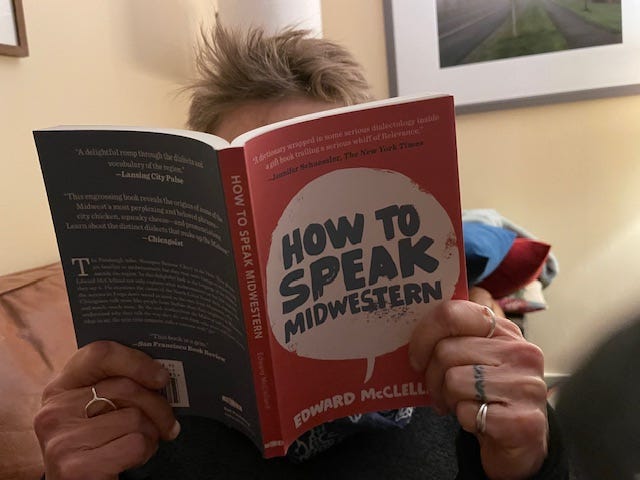
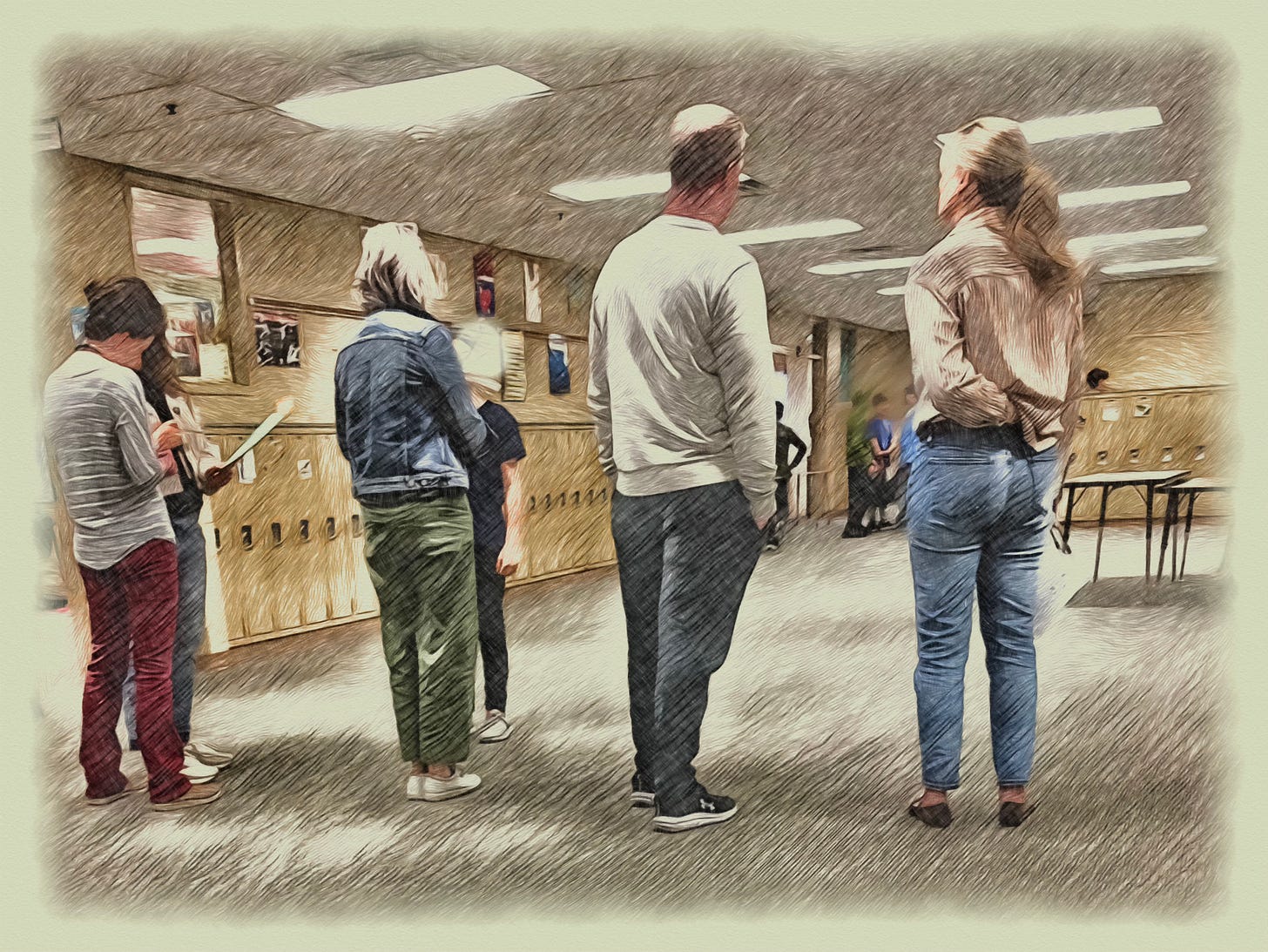
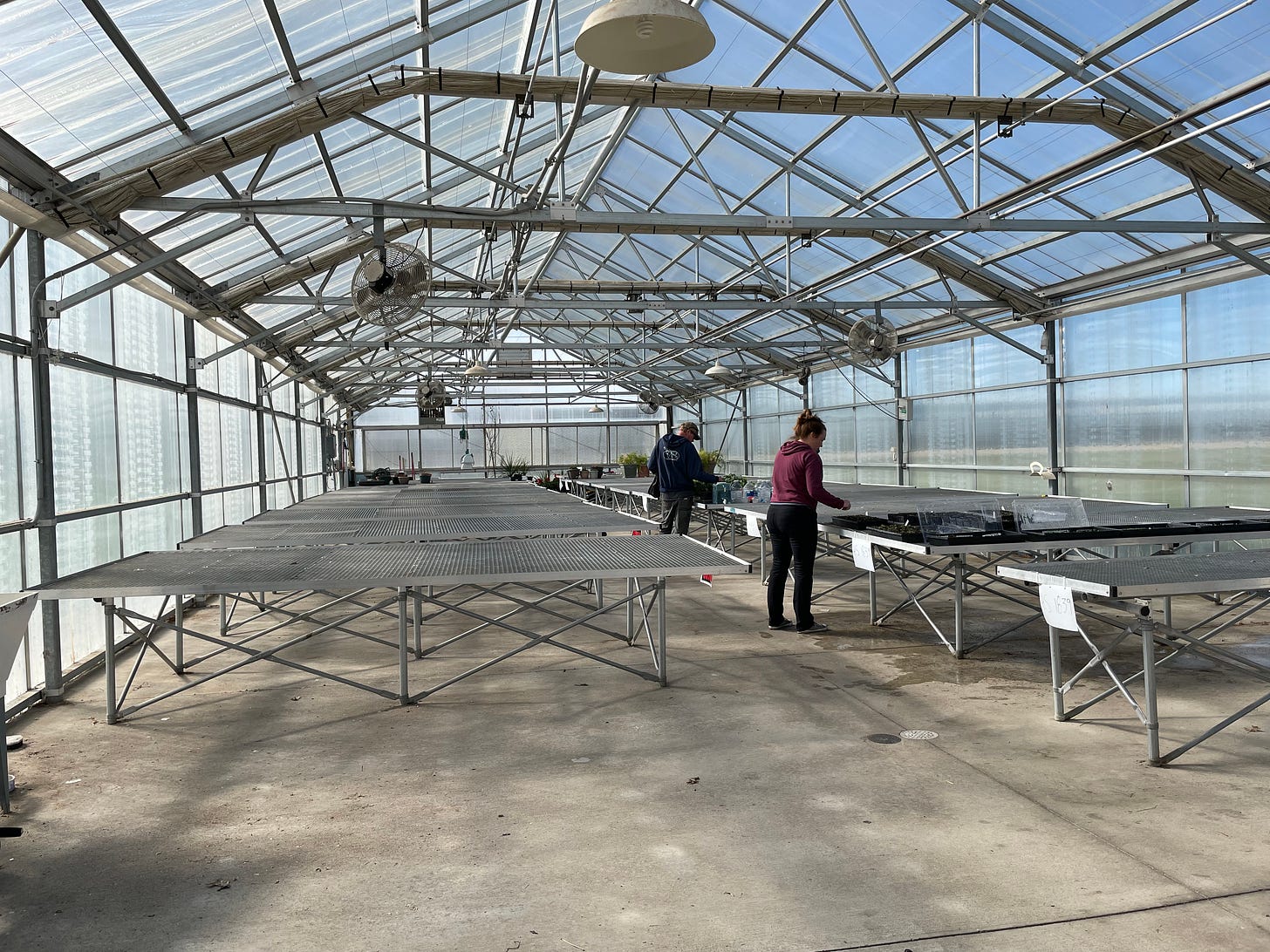
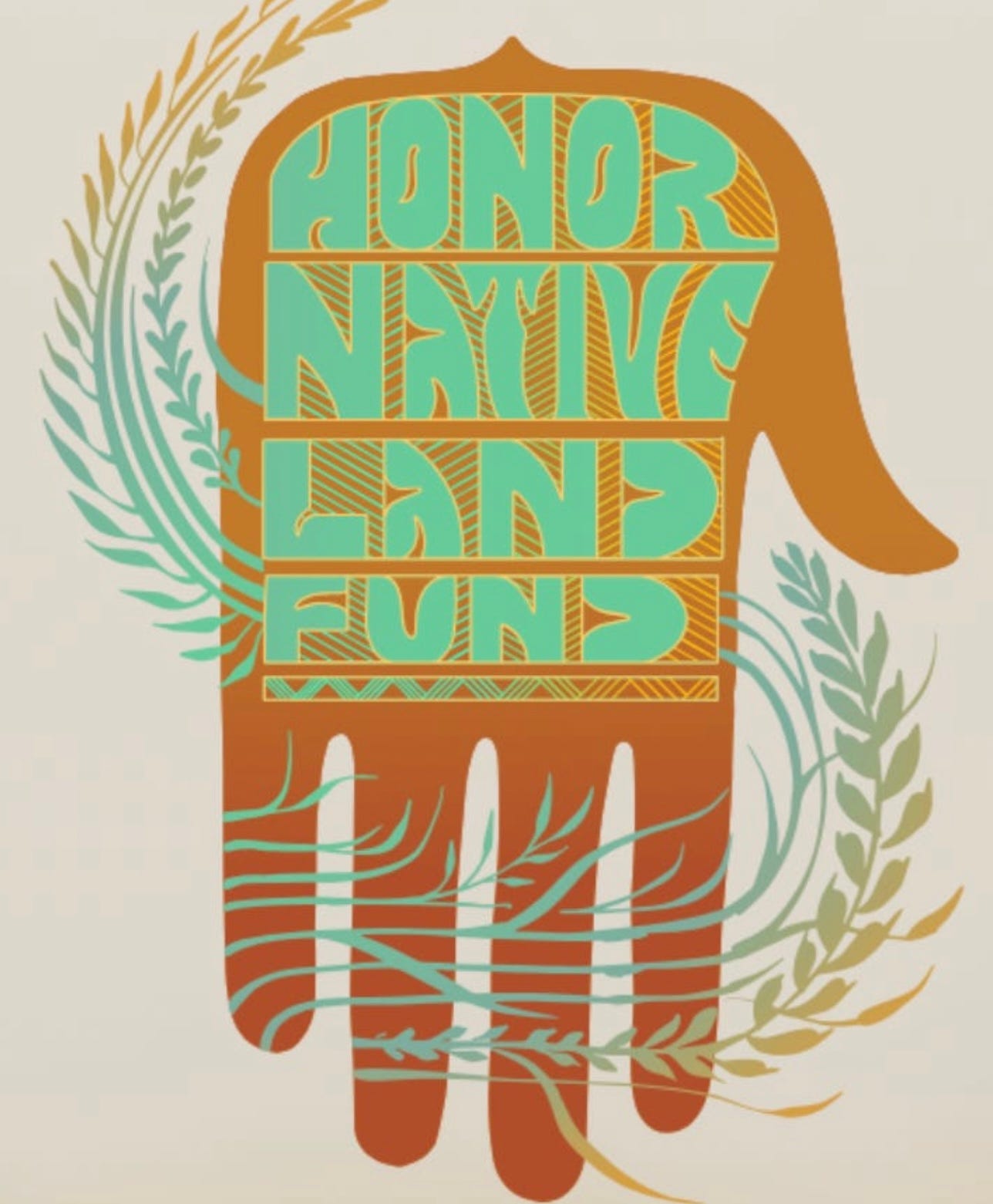
Wonderful column! It was delightful to meet you, and share stories. You made my day, and I look forward to learning more from you. Thank you sister...